ESCAPE
Nieu Bethesda II: Big mountains, little fish and old fossils

No one expects you to climb a mountain to visit a butterfly, unless you’re on the hike up the Compassberg, the peak that looms over Nieu Bethesda.
The Compassberg Skolly (Thestor compassbergae) can only be found up here, on the slopes of the highest and most visible slab of dolerite in the Karoo. This famous fanged mountain stands at a shade over 2,500 metres above sea level, and was named by the adventurer-soldier Robert Jacob Gordon back in 1778.
He came here on an extended cross-country jaunt with Cape Governor Joachim van Plettenberg and together they marvelled at the landscape spread before them. Back in a bar of choice down in Nieu Bethesda, the question often arises: “have you climbed the Compassberg? It’s really awesome”. That may be true, but don’t undertake this ascent lightly. Pack for a decent mountain challenge, know that the weather can turn at any moment in the Sneeuberg range, be reasonably fit, take sunscreen and water and, if possible, go with someone who’s done this before.
And take photographs, because the view from up there, on the shoulders of our very own Matterhorn, will be worth the sweat and the blisters. Or so they say.
The Ganora Fish
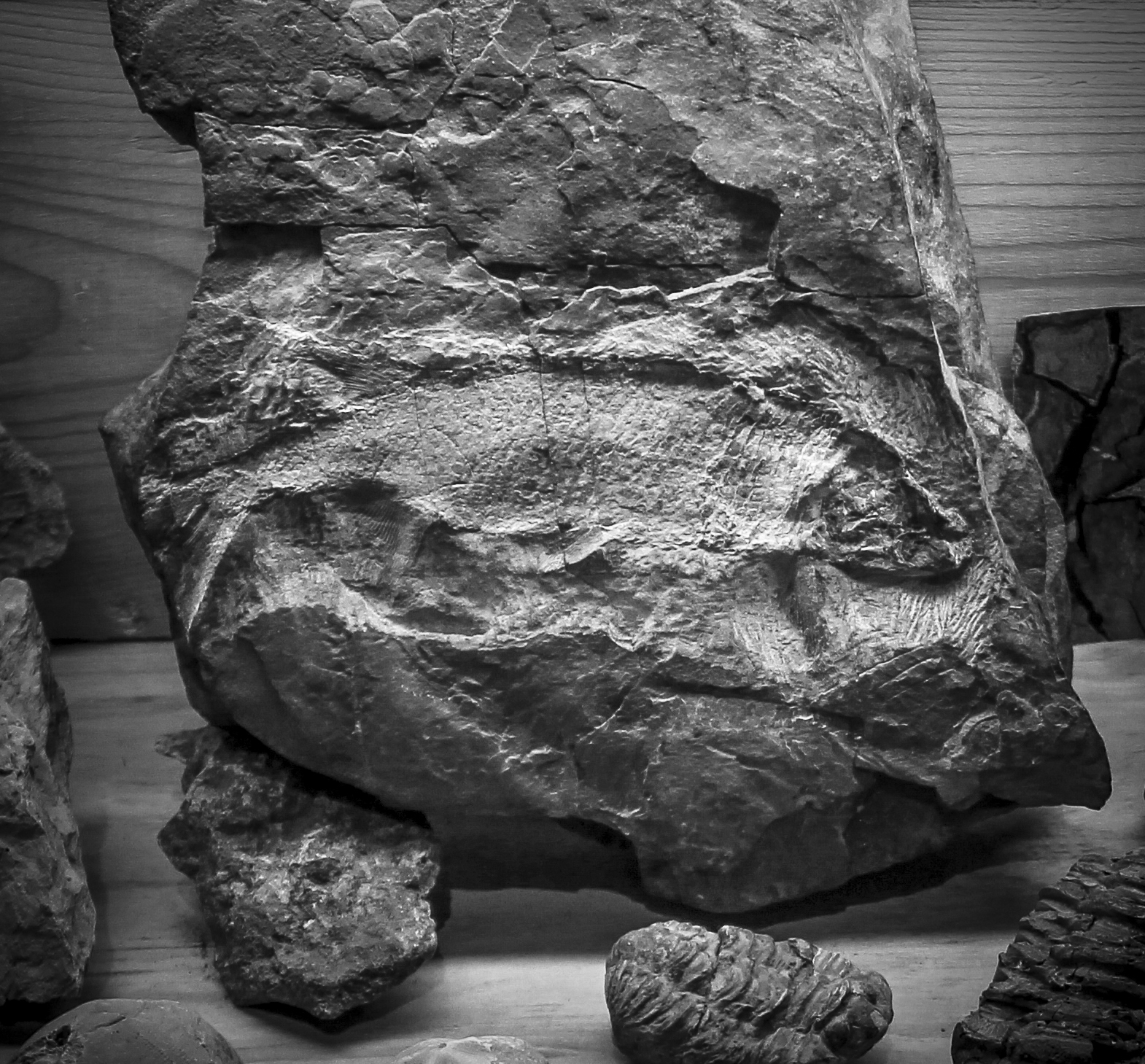
This fossil fish named Kompasia delaharpei was found by Louis and Renier Steynberg on Ganora Guest Farm. (Photo: Chris Marais)
Ganora Guest Farm just outside Nieu Bethesda boasts an exquisite museum in one of its outbuildings.
Appropriately enough, the stoep is covered in flagstones with the ripple marks of the Karoo’s ancient flood plains still clearly delineated. Inside are San artefacts, stone tools, potsherds and hundreds of fossils, including the fearsome skulls, jawbones and leg bones of long-extinct creatures.
The crown jewel of the collection is a uniquely well-preserved fossil fish with scales and stubby leg-like fins, named Kompasia delaharpei. It was originally found by the owners’ sons, Louis and Renier Steynberg, on Ganora. It’s the only complete fossil fish of its kind in the world. The other one like this comes from Wilgerbosch Farm next door, but only a tiny fragment remains.
Some fossils at Ganora have been cleaned up, and others left in the rock, as they were found. Farmer JP Steynberg takes visitors out on a fossil walk into the farm veld, where one will find signs of pre-dinosaurs like the Aulacephalodons and the Gorgonopsia from more than 280 million years ago.
Palaeontologist Robert Broom wrote in 1932:
“The mammal-like reptiles of South Africa may be safely regarded as the most important fossil animals ever discovered. Among them, we have the ancestors of the mammals, and the remote ancestors of Man.”
Wellwood Farm
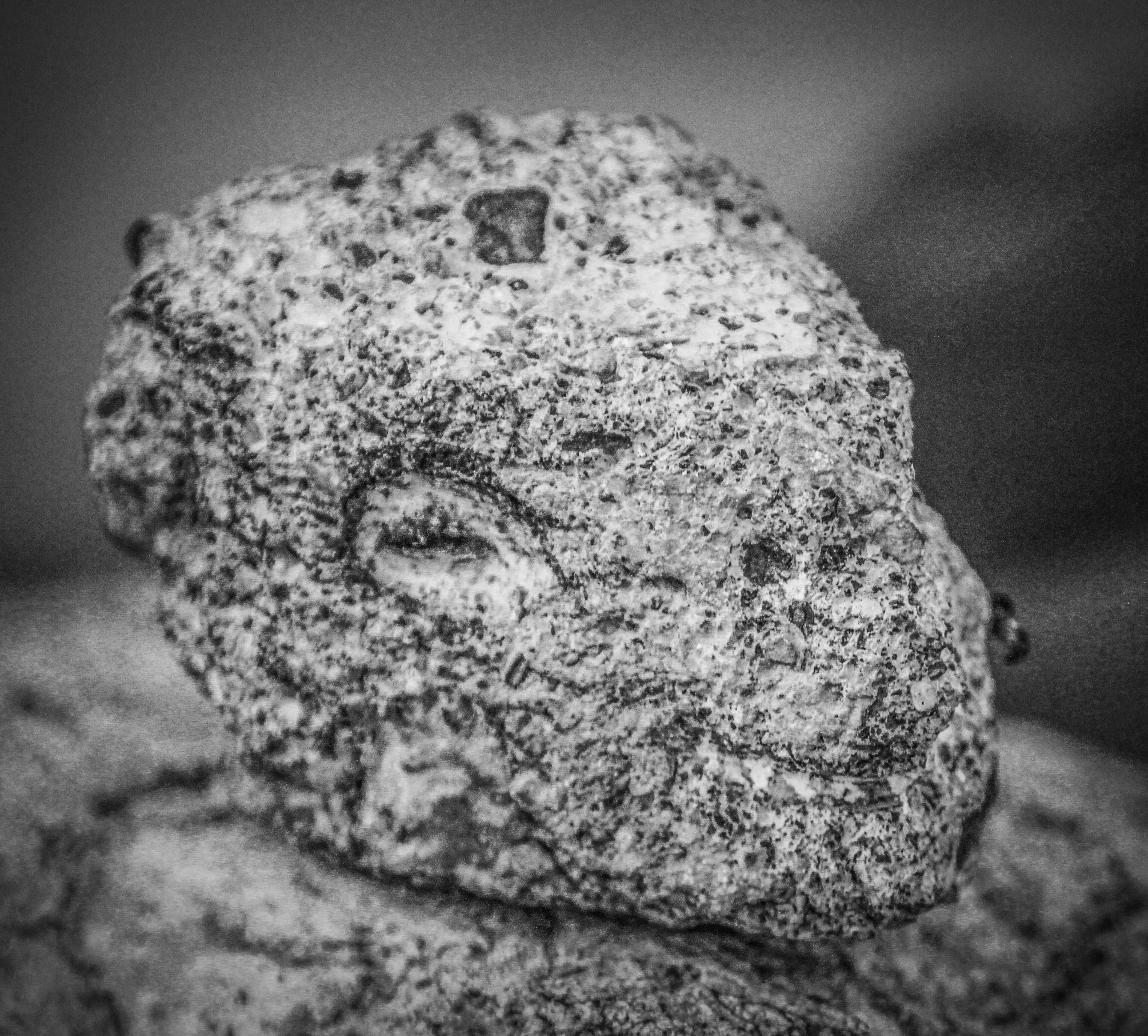
The cement skull helped to inspire Bruce Rubidge to become a palaeontologist. (Photo: Chris Marais)
The world-class collection of ancient Karoo pre-Permian extinction fossils that used to be on display at Wellwood Farm, was gathered by the late great Sidney Rubidge.
But the most touching skull on display was not very old at all. It is a wedge-shaped piece of cement, with little teeth and eyes etched into it. It dates back only a few decades, and was unearthed by Sidney Rubidge’s grandson Bruce, then all of three years old. He hopped on his little tricycle and pedalled down to his granddad at Trymore Cottage in a state of great excitement.
“My grandfather took it, and praised me for making a great find. The next time I saw it, he had chiselled little eyes, nostrils and teeth into it.”
It is a tangible bit of history, linking the great palaeontologists and fossil hunters who were Rubidge’s family friends (notably Robert Broom and James Kitching) with the next generation. Bruce went on to head up the Bernard Price Institute for Palaeontology at the University of the Witwatersrand, where Kitching had been the first member of staff.
The Rubidge family now has several creatures named after it. The most famous, Rubidgea, was a tiger-sized predator with alarmingly long canines, now mercifully extinct. The collection will form part of the New Fossil Centre in Graaff-Reinet, currently under construction.
Follow the water

The mountain stream that feeds the furrows of Nieu Bethesda. (Photo: Chris Marais)
One of Cradock’s sons, the late Guy Butler, captured his childhood beautifully in the local autobiography Karoo Morning. He, like many children before and after his time, used to relish the water furrows of his Karoo hometown. He writes:
“The sun could be blazing on Bree Street, but the furrow under the beefwood trees would be cool. So one naturally took one’s playthings into the furrow with one. There is a family story of Grannie pulling a sopping Butler grandchild out of the half-full furrow, both its chubby fists full of her silver teaspoons.”
On warm midsummer evenings, the young ones would come to play alongside these wonderful gravity-fed water furrows. They made boats out of paper and sent them sailing down the channels.
Cradock still has a furrow system near the Great Fish River, but if you’re looking for furrows actively gurgling through the streets of an Eastern Cape Karoo town, Nieu Bethesda is where one needs to be. Nieu Bethesda’s sweet water is spring-fed and led into a series of furrows that spider-web their way around the central part of the village and irrigate homeowners’ gardens.
Chances are, if you’re staying in one of the Nieu Bethesda self-catering houses, you will fall under the spell of the sound of rushing water.
The Rest
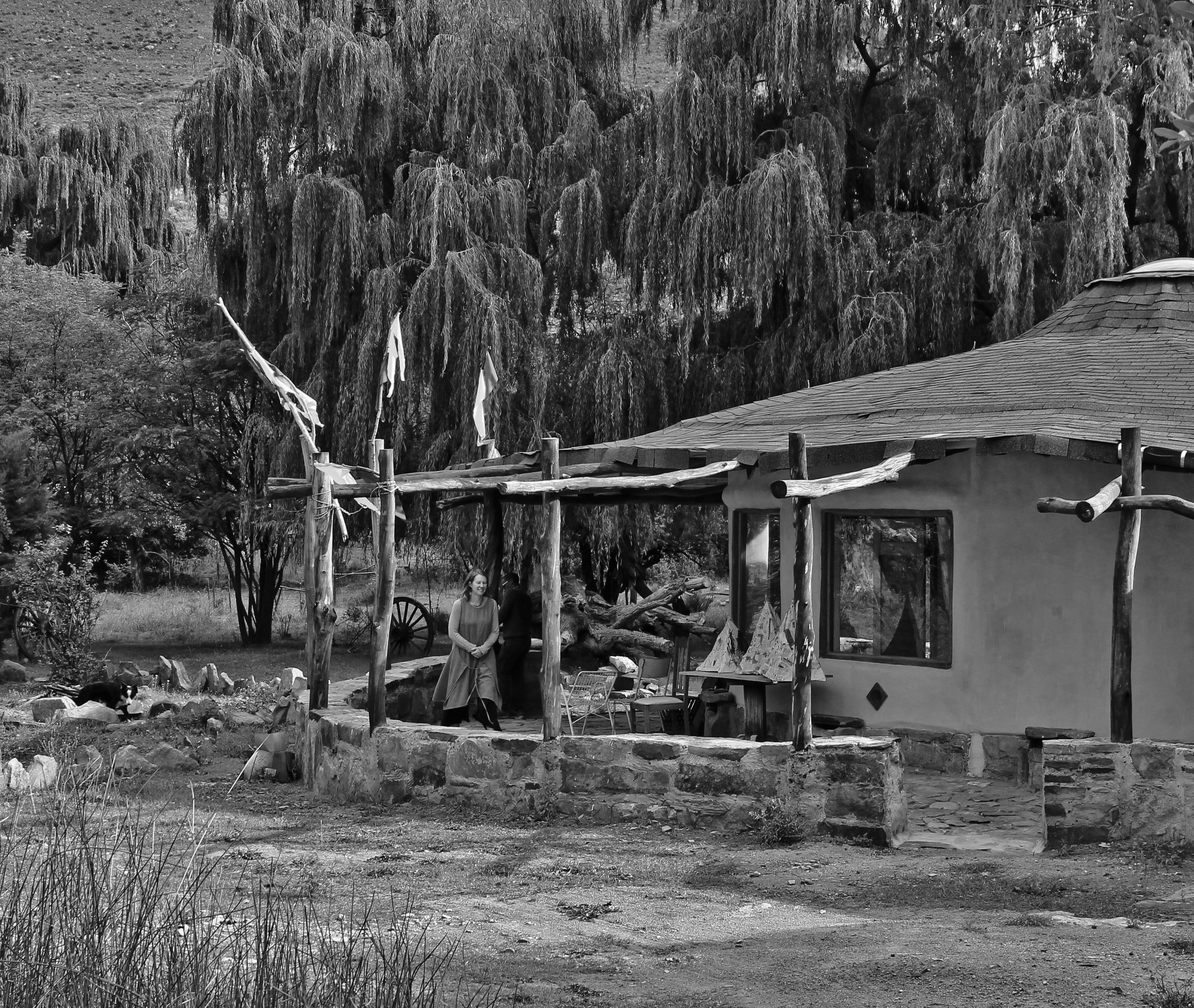
Paula Kingwill of the Rest farm refuge in the mountains outside Nieu Bethesda. (Photo: Chris Marais)
This is what it’s like to wake up on the Rest, a farm refuge deep in the Sneeuberg ranges near Nieu Bethesda.
Leave the curtains open, and watch the landscape outside changing colour tones, from grey through to amber. The mountains play dress-up, wearing misty swirls as skullcaps, shawls, coats and scarves. The clouds drape themselves around the slopes of Alwynkop, sliding down the clefts, covering up the more distant ridges and then suddenly lifting for the Big Reveal. The soft Karoo sunlight and the soundtrack of bokmakieries and starlings in full throat bring a feeling of clarity, safety and peace.
An early-morning walk takes you through the veld to a stone-edged labyrinth where it’s just you, your thoughts and that vlakhaas you flushed out of the thick Karoo grass. After breakfast, come and meet Paula Kingwill at the Space, a remarkable light-filled building created for dance, but also for stillness.
Like most people in the neighbourhood, Paula wears a number of hats. She is a drama therapist who also farms grass-fed beef. Together with her husband Iain North, they have built up a very special mountain hideaway where guests are encouraged to pack away mobile phones, leave the laptop in its case and generally disconnect from the world they left behind.
The guardian
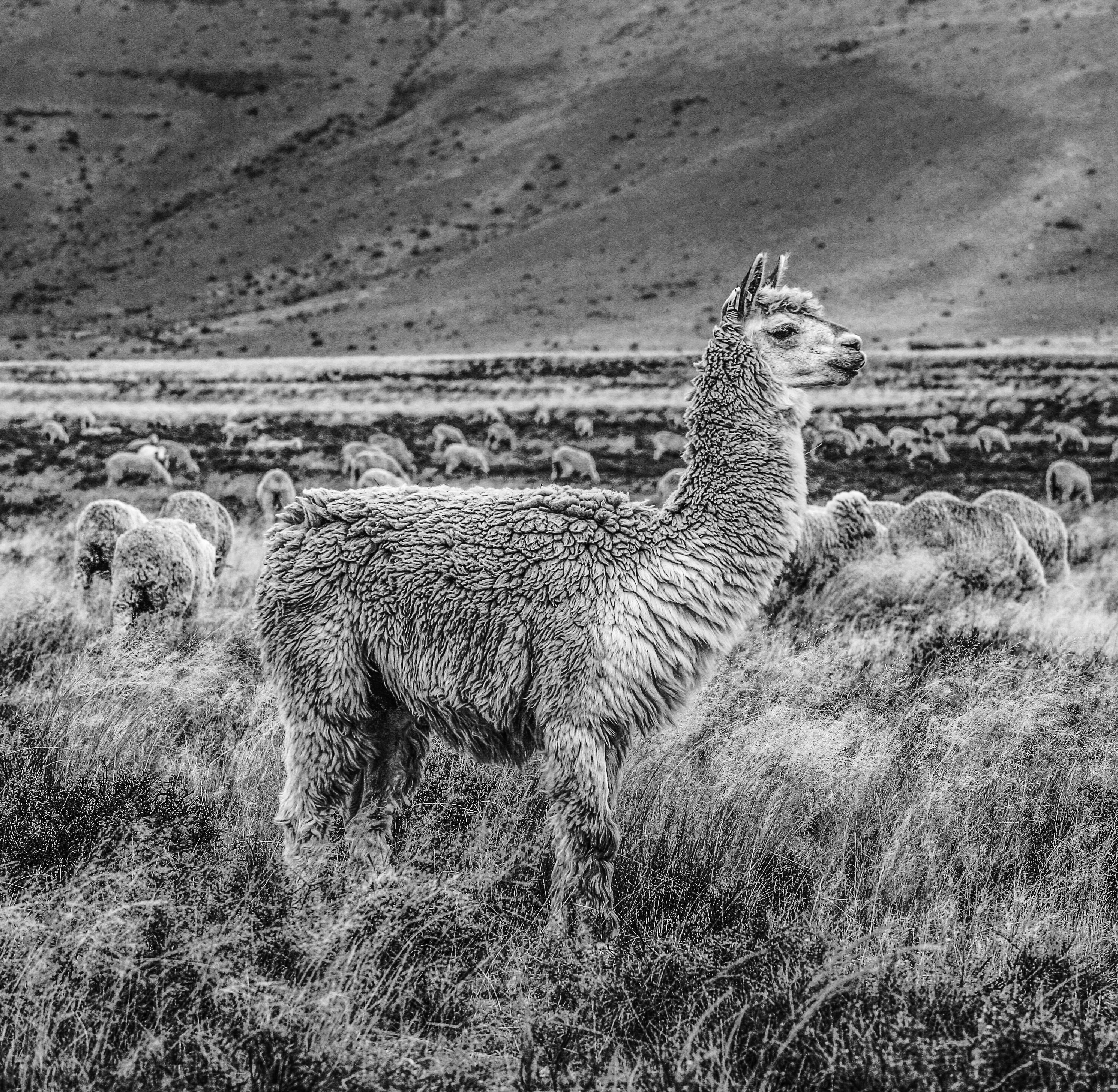
The alpaca is an effective guardian of Karoo sheep. (Photo: Chris Marais)
According to those in the know, getting an emotional South American to guard sheep against wily jackals and dreaded rooikatte is the safest, cleanest way to go.
The castrated alpaca male (also known as a “wether”) has no romantic distractions. He develops a protective attachment to the sheep, goats or chickens in his immediate vicinity. In fact, as you drive past one of the flocks out at Wellwood Farm, just get out and stroll towards the sheep. You will shortly discover that a resident alpaca has inserted himself between you and the livestock, giving a rather haughty “eyeball”.
Cuddly as he may seem, the Alpaca has some fearsome weapons in his arsenal.
He can run like hell, kick like a mule and spit like a cowboy. He also possesses a very high-pitched yell that puts the wind up most of the Karoo predators that can take about 30% of a farmer’s lambing stock in one season. He comes from the high plateaux of the Andes Mountains (Altiplano) and is quite social. A pair of alpacas will guard as many as 200 sheep, staying out in the veld with the livestock in all conditions. DM
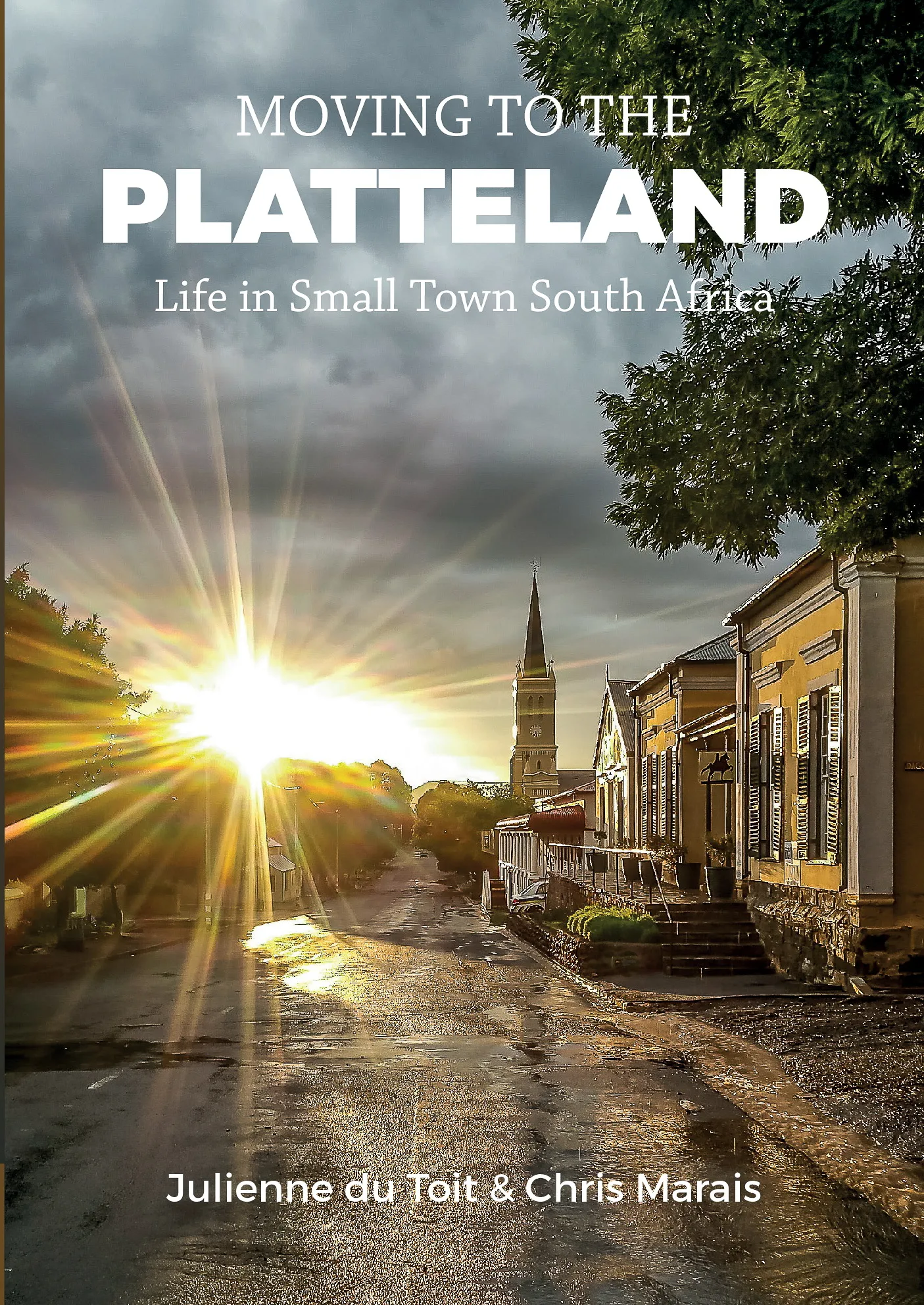
‘Moving to the Platteland: Life in Small Town South Africa’ by Chris Marais and Julienne du Toit.
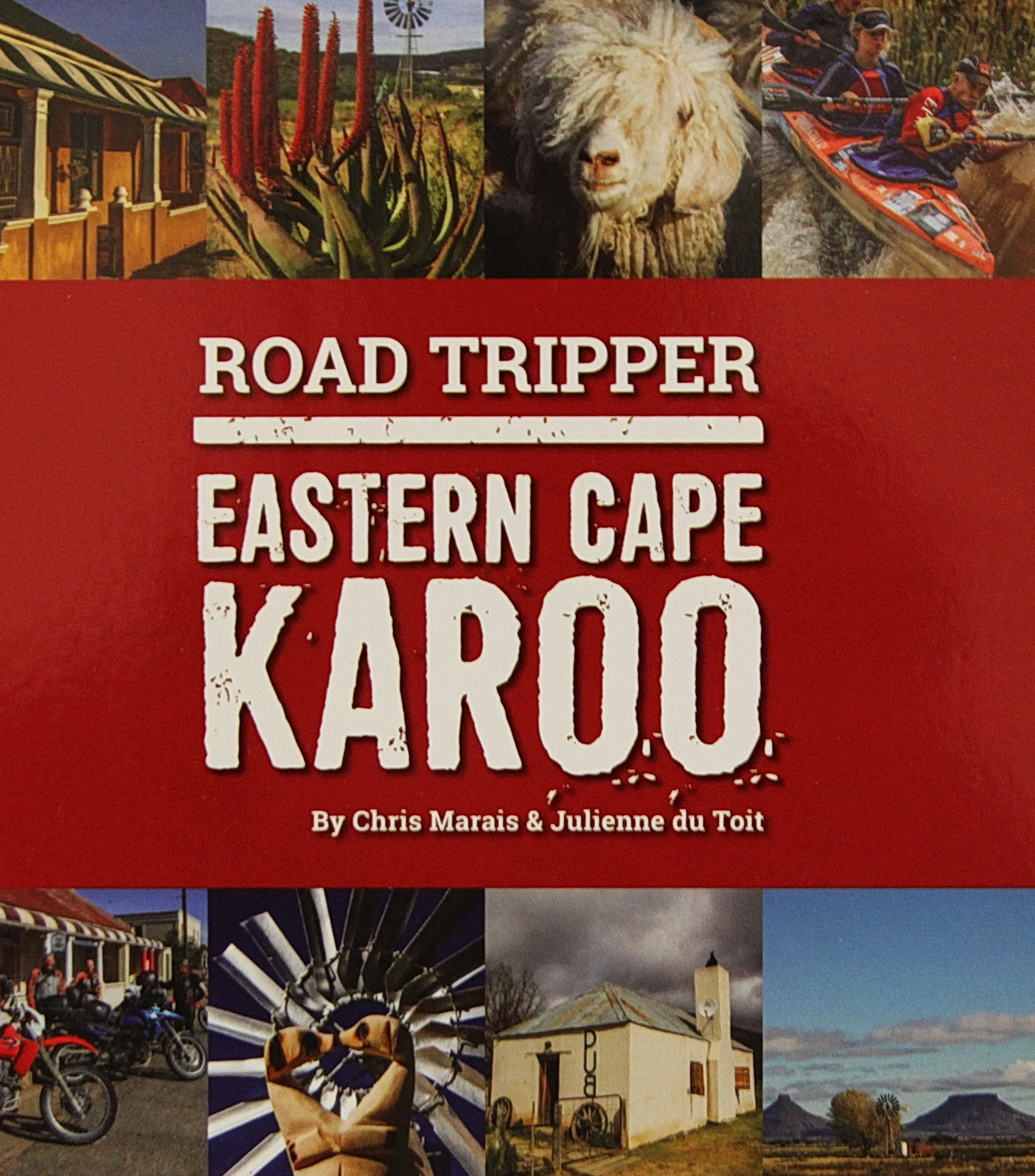
‘Road Tripper: Eastern Cape Karoo’ by Chris Marais and Julienne du Toit.
This is an excerpt from Road Tripper: Eastern Cape Karoo by Chris Marais and Julienne du Toit. The authors are offering a two-book special of Moving to the Platteland: Life in Small Town South Africa and Road Tripper: Eastern Cape Karoo at only R520, including courier costs in South Africa. For enquiries, contact [email protected].


















Lovely!